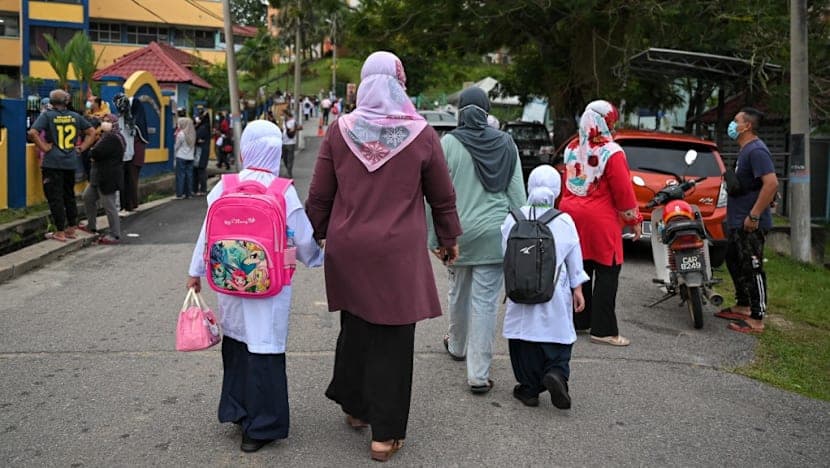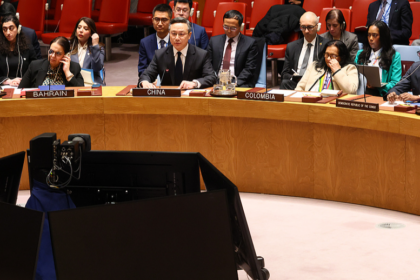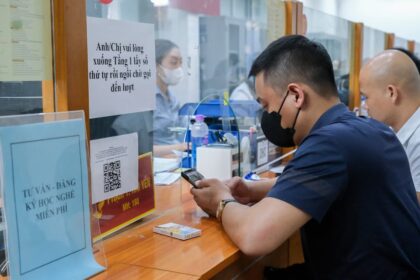Closures Hit As Cases Surge Ahead of Exams
Malaysia is contending with a nationwide influenza wave that has infected around 6,000 schoolchildren, prompting targeted closures of several schools on the advice of district health officers. The spike in infections involves influenza A and B and arrives just weeks before about 400,000 candidates are due to sit for the Sijil Pelajaran Malaysia (SPM) school leaving exam in early November. Education officials say closures are time limited and focused on campuses with sustained transmission, in order to protect students and staff.
The Ministry of Health recorded 97 influenza clusters during epidemiological week 40, a jump from 14 clusters the previous week. Most clusters are linked to schools and kindergartens. Infections have been reported across several states, with Selangor registering the highest number of clusters. Health officers are recommending that students who test positive or have classic flu symptoms remain at home for about five to seven days to limit spread.
Education Ministry Director General Mohd Azam Ahmad said some schools have been told to close temporarily for safety. He said more campuses have been reminded to tighten daily precautions, including mask use in crowded indoor spaces and fewer large group activities. Authorities have not disclosed the number of schools closed, and they stress that most reported cases are mild while the situation remains under control.
Where Are The Clusters Rising
Clusters have been detected in many parts of the country, reflecting person to person transmission within classrooms and dormitories. Selangor tops the list with 43 clusters, followed by Kuala Lumpur and Putrajaya with 15, Penang with 10, Johor with nine, and Kedah with five. Officials say the distribution is wide rather than concentrated in one city.
In Penang, state health committee chairman Daniel Gooi said the state ranks among the hardest hit for influenza like illness this year. Penang logged 18 influenza clusters from the start of the year compared with 19 during the same period in 2024. He reported that last year the influenza positivity rate in the state ranged from 35.6 percent to 51.1 percent, and that respiratory clusters are down about 52.4 percent year on year. He cautioned that cases tend to rise toward the end of the year, and he urged continued hand washing, good cough etiquette, and wearing masks in crowded indoor places.
What a cluster means and how it is found
A cluster is a group of linked infections in a shared setting, for example students in the same class, team, hostel, or school. Health teams identify and track these groups through the national surveillance system for influenza like illness (ILI) and severe acute respiratory infection (SARI). Doctors who participate as sentinel sites submit test samples and weekly tallies. Investigators then work with schools to locate contacts, isolate symptomatic students, and reinforce everyday controls.
How Schools Are Responding
Schools have been asked to revert to routine steps that became familiar during the pandemic period. Those steps include encouraging mask use indoors during outbreaks, limiting assemblies and large events, spacing out activities when possible, and keeping students with fever or respiratory symptoms at home. Closures are targeted and short, generally lasting several days to a week, and are decided with input from District Health Offices.
Education Ministry Director General Mohd Azam Ahmad underlined that guidance in a message to school leaders.
“We have reminded schools to follow these guidelines, encouraging the use of face masks and reducing large group activities among students.”
Several schools have adopted hybrid arrangements to protect vulnerable students while keeping exam preparation on track. In Kelantan, SM Sains Pasir Puteh and SM Sains Machang moved Forms 1 to 4 to online lessons, while Form 5 students and teachers continued face to face classes under strict procedures. The Machang school reported 51 students with flu symptoms, with the first case recorded on October 5. The Pasir Puteh school recorded its first case on October 7 and later counted 58 students with symptoms.
Hybrid classes and exam preparation
Malaysia’s Examination Board has been asked to remain on standby as the SPM period approaches, with the first papers scheduled to start on November 3. The goal is to preserve teaching time for students sitting the crucial SPM while lowering the risk of contagion on campus. Administrators have refreshed cleaning schedules, reminded families to keep sick children at home, and prepared to shift short periods of instruction online where necessary.
Why This Flu Wave Is Spiking Now
Influenza viruses are respiratory pathogens that spread through droplets, aerosols, and contaminated surfaces. Influenza A tends to circulate widely across species and generally causes larger outbreaks in people. Influenza B primarily circulates among humans and changes more slowly. Both cause similar symptoms, including fever, chills, sore throat, muscle aches, cough, and fatigue.
Malaysia’s tropical climate supports influenza activity throughout the year, with more pronounced waves in some months. Toward year end, more time spent indoors, school terms in full swing, travel, and holiday events can create more opportunities for transmission. Young children and teenagers tend to have higher attack rates because close contact in classrooms and hostels makes exposure frequent.
Repeated hand contact on shared desks, cafeteria trays, doorknobs, and devices can move virus particles between people. Better ventilation, timely cleaning, and consistent respiratory etiquette limit spread. Short, targeted closures can interrupt chains of transmission in schools with many linked cases.
What Parents And Students Should Do
Public health experts urge families to take simple steps that cut risk and shorten outbreaks. Associate Professor Dr Sharifa Ezat Wan Puteh advises that children deserve special attention because many clusters are in schools. She recommends annual flu vaccination for everyone aged six months and older, since vaccine formulas are updated each year.
- Keep children with fever or flu symptoms at home. Follow local advice to self isolate for five to seven days, and return to class only when feeling well enough to participate.
- Wear a mask in crowded indoor spaces, especially during active outbreaks in a school or community.
- Wash hands often with soap and water, or use hand sanitiser if soap is not available.
- Practise good cough etiquette. Cover coughs and sneezes, and bin tissues promptly.
- Improve airflow at home and in classrooms by opening windows where it is safe and practical.
- Talk with teachers or principals about make up work and any exam arrangements if an illness occurs near test dates.
Vaccination and eligibility
The influenza vaccine reduces the chance of infection and lowers the risk of severe illness. It takes about two weeks to reach full effect. Children, older adults, pregnant people, and those with chronic conditions such as asthma, diabetes, or heart disease benefit most. Families who are unsure about timing or medical history should consult a healthcare professional to choose the right time and product.
Government Actions And Next Steps
Health Minister Dzulkefly Ahmad said his ministry will work with the Education Ministry to decide on further steps if the outbreak persists in schools. He has reassured families that the situation is under control, and he noted that most reported cases are mild. Officials continue to urge parents to keep sick children at home and to follow standard procedures such as mask use and frequent handwashing during active clusters.
Case finding and surveillance continue nationwide through ILI and SARI networks. The Health Ministry is also looking into the reported death of a four year old boy in Sarawak who tested positive for influenza A. While severe outcomes are uncommon, the review underscores why early care for high risk children matters.
Risk To Exams And Learning
The timing of the wave is difficult for SPM candidates who are in final revision. The Education Ministry has asked the Examination Board to be ready to adjust operations if required, and school leaders have been encouraged to use flexible teaching plans that limit disruption. The closure decisions are targeted to campuses with active clusters to preserve normal routines for the wider student population.
Parents can help by maintaining a healthy study routine at home, ensuring adequate rest, and speaking with school counselors or class teachers if illness disrupts preparation. Students who are unwell should focus on recovery, communicate with schools about attendance rules, and follow medical advice so they can return safely.
What to Know
- About 6,000 students have been infected with influenza across Malaysia.
- Some schools have been closed temporarily on the advice of District Health Offices.
- Health authorities recorded 97 influenza clusters in one week, up from 14 the week before.
- Most clusters involve schools and kindergartens.
- Selangor leads with 43 clusters, followed by Kuala Lumpur and Putrajaya with 15, Penang with 10, Johor with nine, and Kedah with five.
- Students with flu are advised to self isolate for five to seven days.
- Schools have been reminded to promote mask use and reduce large group activities.
- Penang reports 18 clusters this year to date, compared with 19 in the same period in 2024; positivity rates last year ranged from 35.6 percent to 51.1 percent.
- The Examination Board is on standby ahead of SPM, which begins on November 3.
- Annual flu vaccination for those aged six months and older is encouraged, and officials say the situation remains under control.












